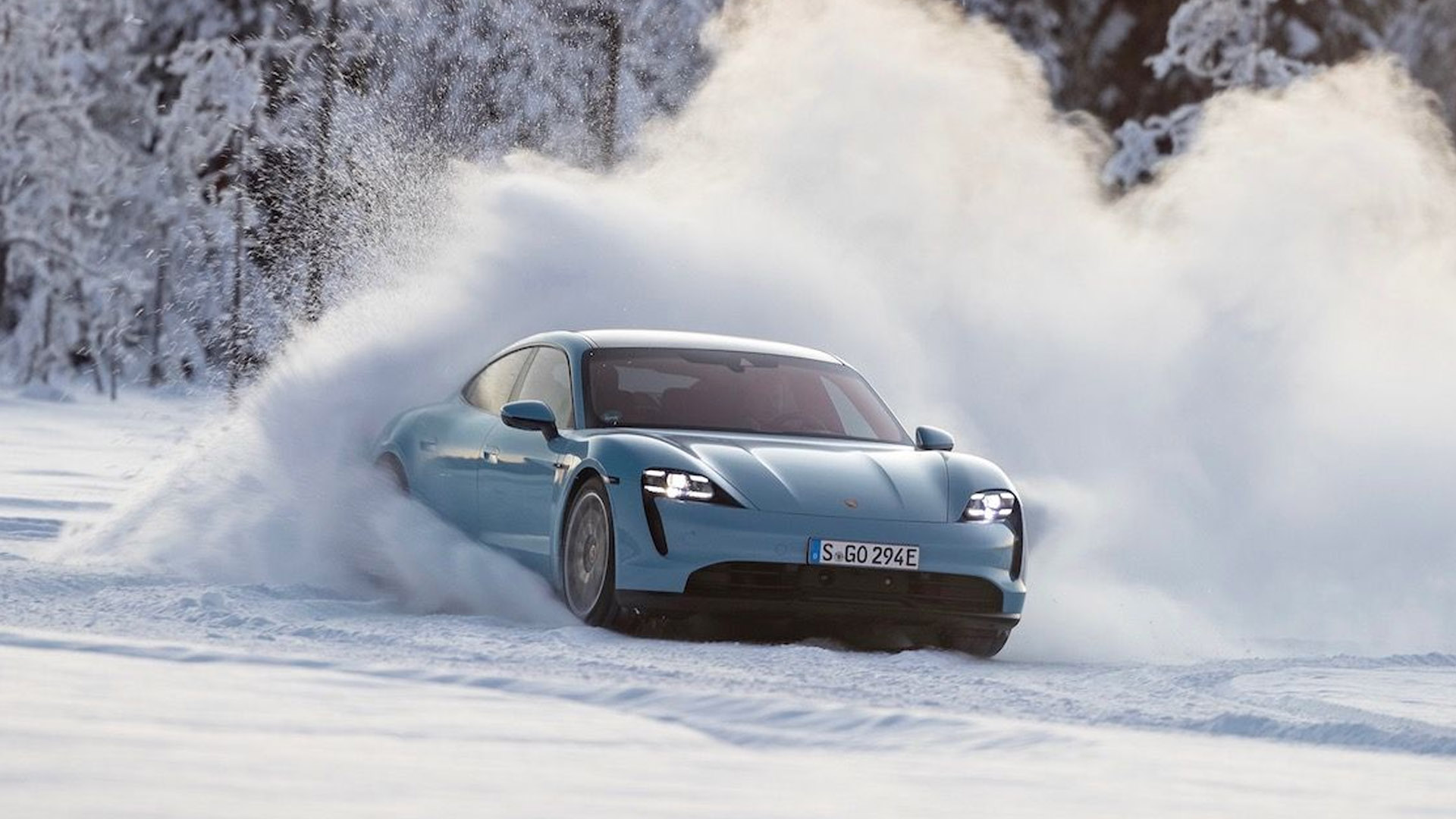

Thanks to the failure of a high-voltage heater unit, some Porsche Taycan owners will be spending the rest of winter either bundling up during cold mornings or parking their cars until warmer weather.
An NHTSA service bulletin published by Porsche says that a limited number of Taycans are affected by the faulty part. Specifically, an out-of-spec soldering job on a circuit board used in this part can cause the failure. The result is an inability to regulate the temperature of the in-car climate control and high-voltage battery, meaning there are some owners with rather chilly cabins this winter.

The failed component, according to a technical explainer by Porsche magazine Excellence, exists to rapidly reheat the coolant coming back toward the cabin from the Taycan’s electric motors and inverter. This heating circuit is shared for cabin heating, defrosting, and to aid in the pre-conditioning of the battery back itself. When the component fails, these crucial items are disrupted, resulting in the need for a six-hour fix from the dealer.
Officially, the NHTSA bulletin says just the 2020 and 2021 cars are affected, however, affected owners seem to think otherwise. Several posts on Porsche Taycan forums are reporting the same part failing on their newer model year cars, up to 2023. Others are reporting that the mechanically-similar Audi E-Tron is suffering from the same failure, though no official NHTSA bulletin exists for that (yet).
“We are committed to customer satisfaction and are aware of an HVAC quality issue affecting cabin heating in some 2020-2023 Taycan vehicles,” said a Porsche spokesperson in a statement to The Drive. “It typically occurs in colder regions when the heater is in frequent use. The A/C functionality is not affected. We are actively working with the supplier to improve component quality. In the meantime, this issue, should it occur, is covered under existing new vehicle warranty for every affected customer. Porsche currently has a steady supply of service parts to support customers if they become affected.”
Porsche says that its NHTSA-published service campaign covers 57 cars, however, that may be a bit light. After all, this particular part has been installed in nearly 100,000 Taycan vehicles since 2020.
Failure data is also plotted by one Taycan owner in a Github repository. Their data has tracked at least 136 failures, including some cars that have had the units replaced three or four times for repeat events. The Github encouraged owners to submit the failures to the NHTSA, which many appear to have done.
Unfortunately, those who have experienced the failure may be in a bit of a pickle. Owners are reporting that the parts necessary to complete the repair are unavailable. What’s worse for many, especially those in colder climates, is that loaner vehicles are not always available for some experiencing the problem. I’m not sure about you, but there’s only so much bundling up I’m willing to do while driving in my $88,000-and-up EV during the winter before I consider it simply too chilly to drive.
Got a tip? Send it in to tips@thedrive.com